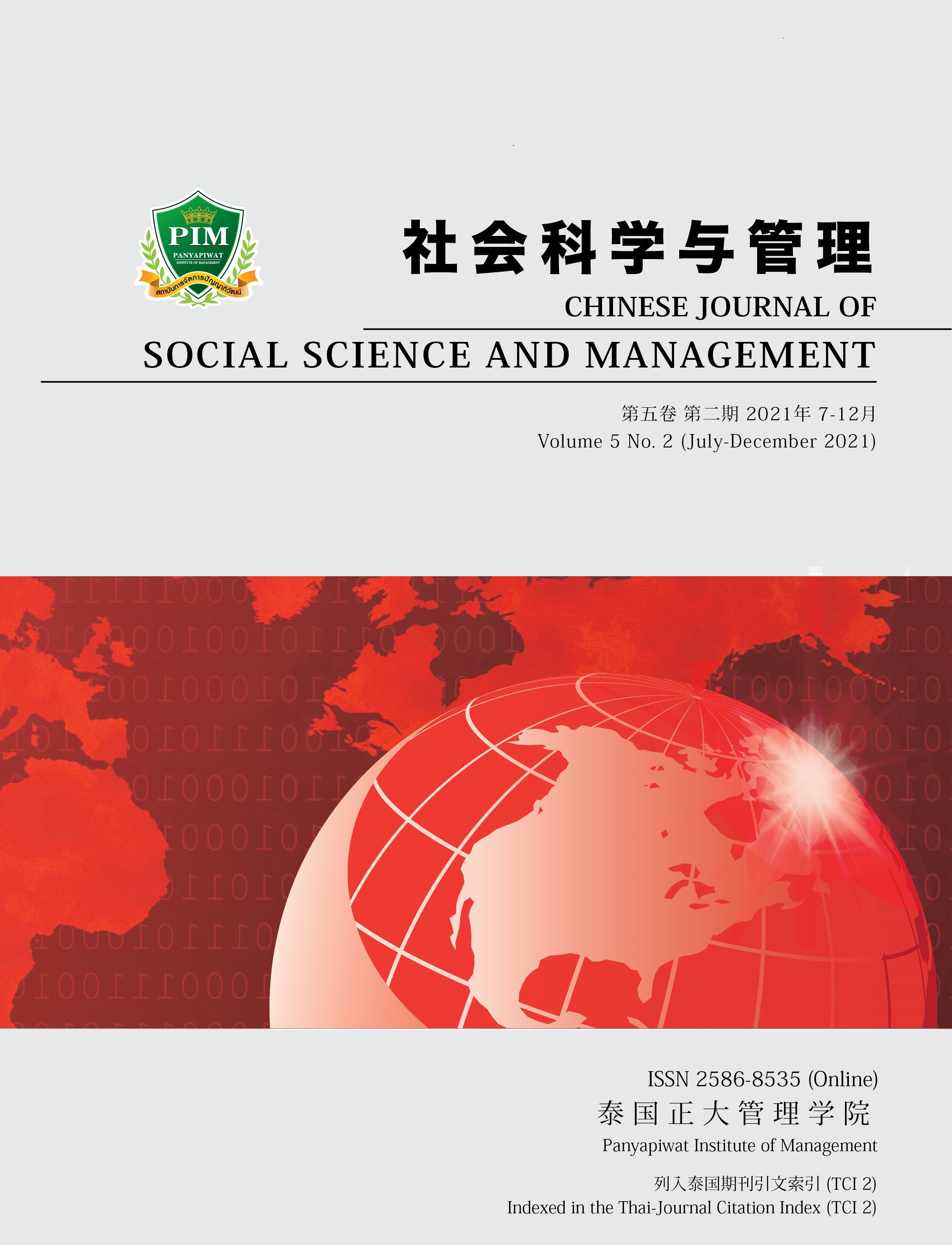RESEARCH ON THE RELATIONSHIP BETWEEN REGIONAL TOURISM DEVELOPMENT QUALITY AND DEVELOPMENT PERFORMANCE
Main Article Content
Abstract
At present, tourism has become a major economic industry in the world and is known as the “golden industry”. The development of regional tourism has also resulted in new opportunities, and development prospects are constantly improving. Thus, it would be necessary to establish a framework that would influence the customer engagement factors and customer engagement and sentiment to have an impact on customer satisfaction. This would be necessary for regional tourism operators to identify and enhance customer participation, improve services, service quality, as well as customer satisfaction.
As a consequence, if regional tourism needs good operation, this would be inseparable from a stable customer flow, as the most basic aspect to attract tourists is customer satisfaction. Based on the theoretical framework model of regional tourism customer satisfaction, this study prepared the relevant research on regional tourism satisfaction in Guizhou Province of China by means of empirical research. Using a combination of qualitative and quantitative analysis methods together with the specific literature, data analysis, interviews, questionnaires, and statistical analysis methods, the theoretical framework model of regional tourism customer satisfaction was constructed, and a framework for influencing the customer participation factors was proposed. This research would have a strong application value for the operation of regional tourism, and also have good exploration significance in theory. This paper also provided some recommendations and measures after analyzing regional tourism customer satisfaction.
Customer satisfaction plays a mediating role in the quality of tourism development and tourism development performance, thus resulting in a great impact. Regional natural economic and social culture, regional important activities, regional service quality, customer participation, and customer spending sentiment would also have an important impact on regional customer satisfaction. The performance of regional development and the quality of amusement would play a role in regulating customer satisfaction. The relationship between tourism development quality and development performance is also a complex and dynamic system. Hence, this paper explored the impact mechanism of the relationship between tourism development quality and development performance. This would help market managers improve their systems, standardize market orders, circumvent the relevant risks, and optimize their own development of the Chinese travel industry.
Article Details
Chinese Journal of Social Science and Management Editorial Division
The Office of Research and Development, Panyapiwat Institute of Management
85/1 Moo 2, Chaengwattana Rd., Bang Talat, Pakkred, Nonthaburi 11120, Thailand
Tel. 02 855 01048 E-mail: cjssm@pim.ac.th
References
Barney, J. (1991). Firm Resources and Sustained Competitive Advantage. Journal of Management, 17(1), 99-120.
Bhattarai, N., Li, Z., Edmondson, D., & Zhang, M. (2006). Alginate-based Nanofibrous Scaffolds: Structural, Mechanical, and Biological Properties. Advanced Materials, 18(11), 1463-1467.
Corbin, B. S. (1990). Identification of Family Member’s Self-care Knowledge: A Qualitative Study. Doctoral Dissertation, Grand Valley State University.
Ezzamel, M., & Willmott, H. (1998). Accounting for Teamwork: A Critical Study of Group-based Systems of Organizational Control. Administrative Science Quarterly, 43(2), 358-396. https://doi.org/10.2307/2393856
Foucault, M. (1977). Historia de la Medicalización. Educación Médica y Salud, 11(1), 3-25.
Foucault, M. (1980). The History of Exuality: Interview. Oxford Literary Review, 4(2), 3-14.
Foucault, M., & Nazzaro, A. M. (1972). History, Discourse and Discontinuity. Salmagundi, (20), 225-248.
Foucault, T., Kozhan, R., & Tham, W. W. (2017). Toxic Arbitrage. The Review of Financial Studies, 30(4), 1053-1094.
Glaser, B. G., & Strauss, A. L. (2017). Discovery of Grounded Theory: Strategies for Qualitative Research. UK: Routledge.
Grant, R. M. (1996). Toward a Knowledge‐based Theory of the Firm. Strategic Management Journal, 17(S2), 109-122.
Gupta, A. K., & Govindarajan, V. (2000). Knowledge Flows Within Multinational Corporations. Strategic Management Journal, 21(4), 473-496.
Hassan, A., Chachi, A., & Latiff, S. A. (2008). Islamic Marketing Ethics and Its Impact on Customer Satisfaction in the Islamic Banking Industry. J. KAU: Islamic Econ, 21(1), 23-40.
Jehn, K. A., Chadwick, C., & Thatcher, S. M. B. (1997). To Agree or Not to Agree: The Effects of Value Congruence, Individual Demographic Dissimilarity, and Conflict on Workgroup Outcomes. International Journal of Conflict Management, 8(4),287-305. https://doi.org/10.
/eb022799
Lukes, S. (1975). Political Ritual and Social Integration. Sociology, 9(2), 289-308. https://doi.org/10.1177/003803857500900205
Nonaka, I. (1994). A Dynamic Theory of Organizational Knowledge Creation. Organization Science, 5(1), 14-37.
Nonaka, I., Toyama, R., & Konno, N. (2000). SECI, Ba and Leadership: a Unified Model of Dynamic Knowledge Creation. Long Range Planning, 33(1), 5-34.
Pandit, N. R. (1996). The Creation of Theory: A Recent Application of the Grounded Theory Method. The Qualitative Report, 2(4), 1-15.
Schultze, U., & Stabell, C. (2004). Knowing What You Don’t Know? Discourses and Contradictions in Knowledge Management Research. Journal of Management Studies, 41(4), 549-573.
Van Dijke, M., & Poppe, M. (2006). Striving for Personal Power as a Basis for Social Power Dynamics. European Journal of Social Psychology, 36(4), 537-556.
Xu, C., & Qu, X. (2014). Cerium Oxide Nanoparticle: A Remarkably Versatile Rare Earth Nanomaterial for Biological Applications. NPG Asia Materials, 6(3), e90-e90.
Yang, Y. F., Jang, G. B., Yang, X. J., Wang, Q. X., He, S. S., Li, S., Quach, C. T., Zhao, S. H., Li, F., Yuan, Z. Q., Lee, H. R., Zhong, H. B., & Liang, C. Y. (2018). Central Role of Autophagic UVRAG in Melanogenesis and the Suntan In Response. Proceedings of the National Academy of Sciences, (pp. E7728-E7737). Washington, DC: PNAS.
Zhang, L., Zhou, W., & Li, D. (2006). Global Convergence of a Modified Fletcher–Reeves Conjugate Gradient Method with Armijo-type Line Search. Numerische Mathematik, 104(4), 561-572.


